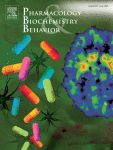link.springer.com/article/10.1...

link.springer.com/article/10.1...
Thanks to @profamymilton.bsky.social @camneuro.bsky.social for helping bring this to life!
www.sciencedirect.com/science/arti...

Thanks to @profamymilton.bsky.social @camneuro.bsky.social for helping bring this to life!
www.sciencedirect.com/science/arti...
This one on our finding that drugs targeting mGluR2 rapidly reduce checking in a rodent model relevant to OCD.
link.springer.com/article/10.1...

This one on our finding that drugs targeting mGluR2 rapidly reduce checking in a rodent model relevant to OCD.
link.springer.com/article/10.1...
Very proud to share Charlotte Rye’s paper from her MPhil work. (She’s not yet on BlueSky but I’ll work on that.) Thank you to @camneuro.bsky.social for all the support 🙏🏻
www.sciencedirect.com/science/arti...

Very proud to share Charlotte Rye’s paper from her MPhil work. (She’s not yet on BlueSky but I’ll work on that.) Thank you to @camneuro.bsky.social for all the support 🙏🏻
www.sciencedirect.com/science/arti...

